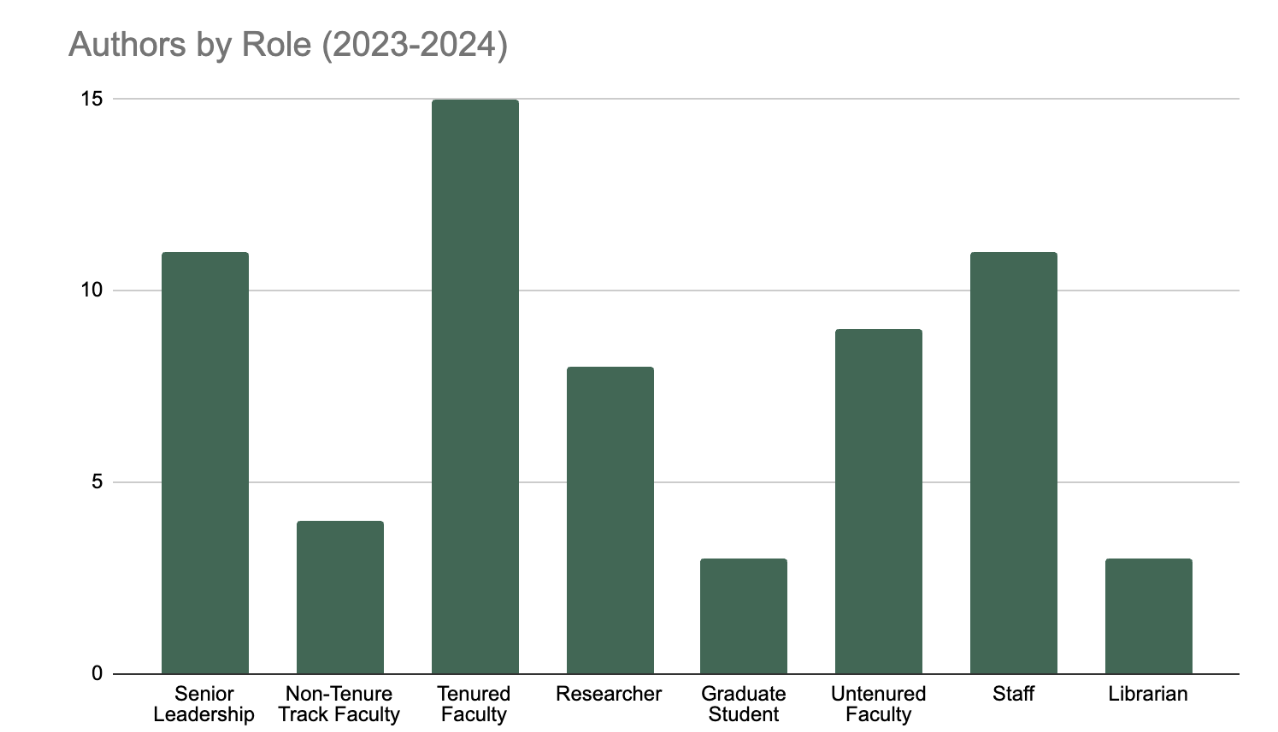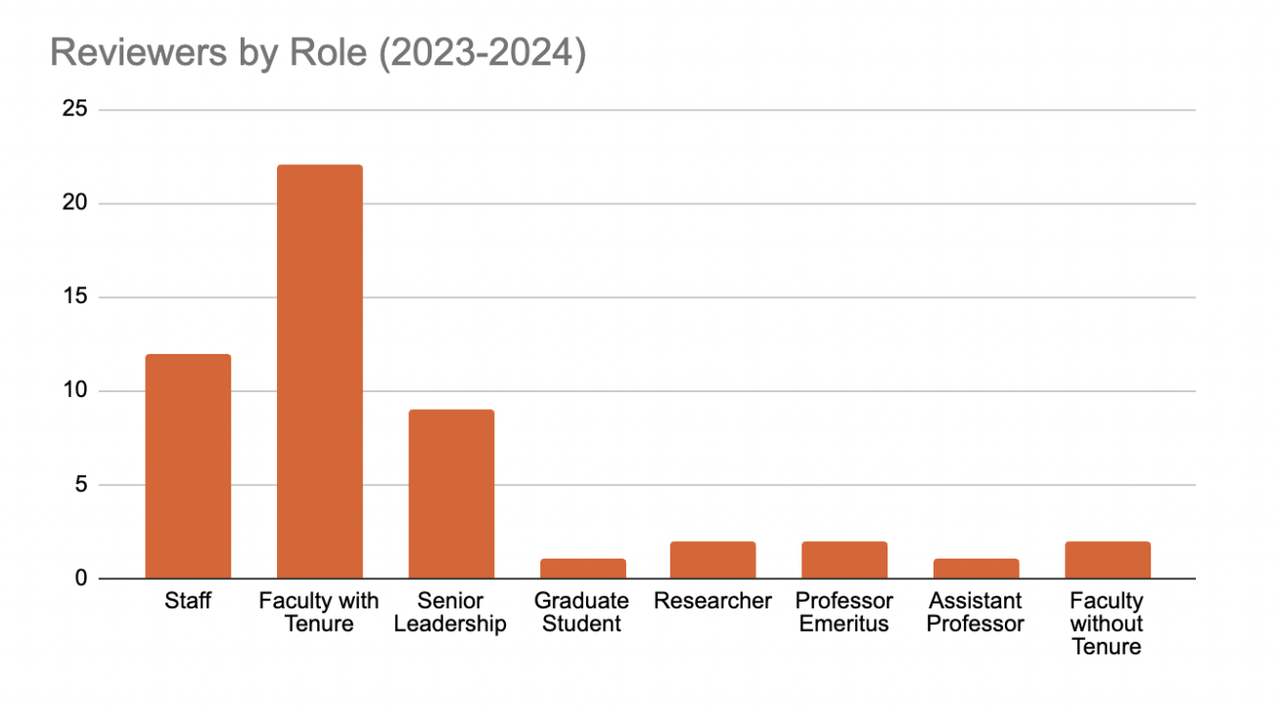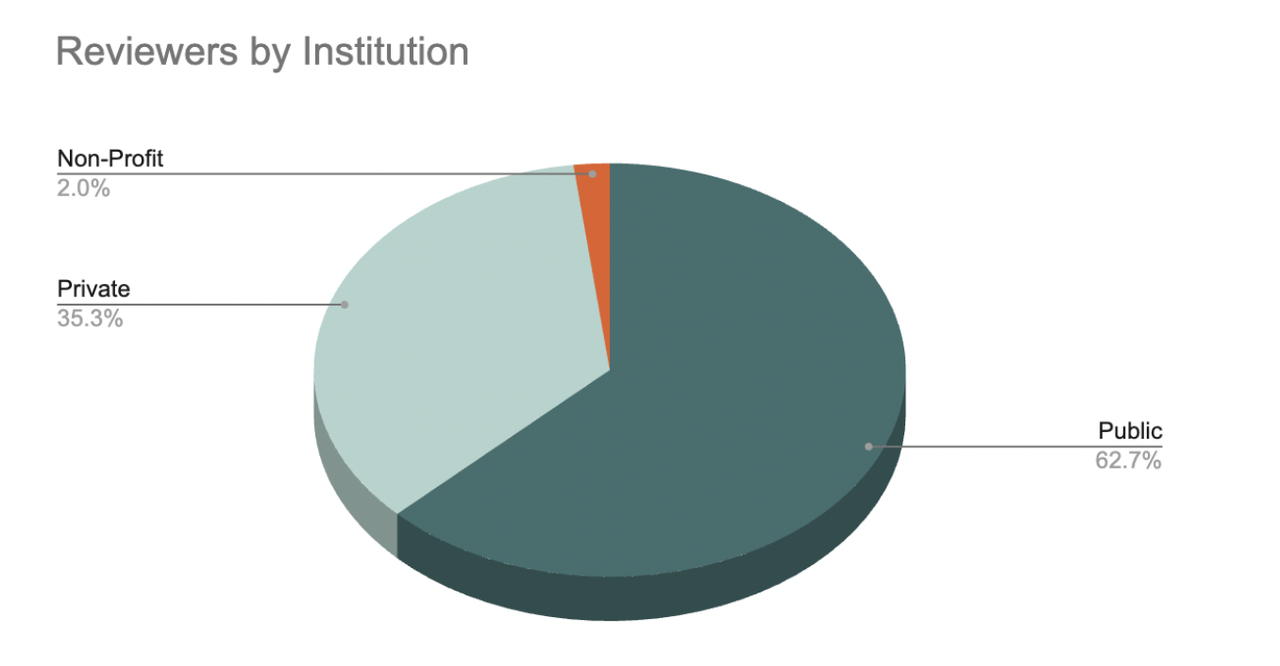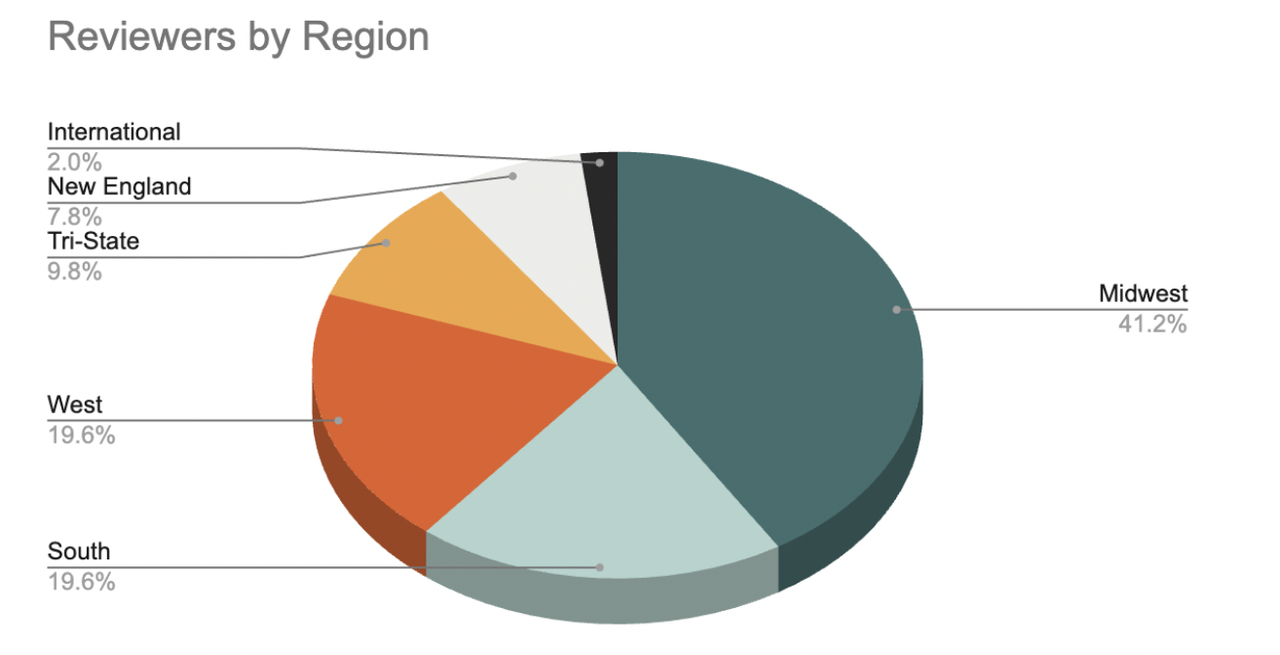In a time where higher education is under amplified scrutiny, we hold fast to our belief in the importance of diverse representation, participation, and leadership in the field of community engaged scholarship.
To that end, as part of MJCSL’s continued commitment to enhancing transparency and our ongoing mission to increase diversity within community engaged learning, we are excited to reveal statistical insights into our review and publication processes from the last two years (2023-2024).
Top Viewed Articles From 2023:
- Defending Democracy: What We Can Learn About Civic Identity from Peer Educators Involved in Nonpartisan Political Engagement by Alexander Stephen Kappus
- Introduction to the Special Volume on Civic Identity by Thomas Joseph Schnaubelt, Sandra Bass, Luke Terra, and Kristina Lobo
- Persistence and Proliferation: Integrating Community-Engaged Scholarship into 59 Departments, 7 Units, and 1 University Academic Promotion and Tenure Policies by Emily Janke, Isabelle Jenkins, Melissa Quan, and John Saltmarsh
- How College Students Can Depolarize: Evidence for Political Moderation Within Homogeneous Groups by Yasmeena Khan and Alice Sui
- We’re Talking About Process: The Primacy of Relationship and Epistemology in Defining Community-engaged Scholarship in Promotion and Tenure Policy by Emily Janke, Melissa Quan, Isabelle Jenkins, and John Saltmarsh
Top Viewed Articles from 2024:
- Reciprocity in Community-Engaged Learning: A Case Study of an Undergraduate Knowledge Exchange Project in an Over-Researched Urban Community by Evan Mauro, Kirby Manià, Nick Ubels, Heather Holroyd, Angela Towle, and Shannon Murray
- Centering Community Voice and Knowledge through Participatory Action Research by Jennifer Lucko
- Open access for community partners, impactful outputs for scholars: Leveraging scholarly communication movements to enhance reciprocity in community based research by Olivia Ivey and Rachel Borchardt
- From Non-Profits to Neighbors by Carmine Perotti
- ‘The Real Data Set’: A Case of Challenging Power Dynamics and Questioning the Boundaries of Research Production by Victoria Copeland and Rachel Wells
Authors by Role:
Over the four issues included in volume 29 and 30, 64 authors were published. The main groups represented were tenured faculty (15), senior leadership (11), and staff (11) respectively. Untenured faculty (9) and independent researchers (8) followed.

Reviewers by Role:
51 reviewers served over the course of the two volumes. Once again, faculty with tenure (22), staff (12), and senior leadership (12) represented the majority of reviewers. These results suggest we could do more to support and advance participation from emerging scholars and contingent faculty.

Reviewers by Institution:
The majority of reviewers (62.7%) worked at public institutions. 35.3% and 2% of reviewers worked at private institutions and non-profits respectively.

Reviewers by Region:
As with last year, we saw representation among reviewers from all across the US and even some international representation over the course of 2023-2024. The majority of reviewers were based in the Midwest (41.2%), while representation from the Southern United States (19.6%) and Western United States (19.6%) followed.

Acceptance Rate:
We have structured the review process at MJCSL to best support not just scholarship but scholars themselves at every stage of review. Our collaborative peer review process aims to offer scholars constructive and cohesive feedback, and our editorial team synthesizes peer review feedback to make it supportive and directive. At the same time, we maintain rigor and selectiveness. From initial proposal submission to the final manuscript, our acceptance rate has tended towards an average of 22% over the course of the past two years.
Back to Blog List

